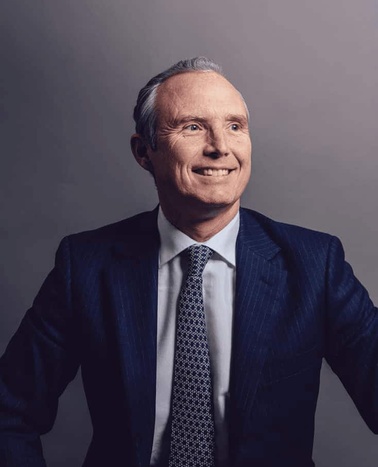
Victor Torre de Silva
Professor Torre has a far-reaching experience in the field of Public Law, mostly in Administrative and European Union Law. He developed an extensive political career, by starting as State Legal Council, Director of the Cabinet of the Presidency of the Congress of Deputies, Under Secretary of Defense and advisor of several private and public companies. He graduated from Harvard Law Schools with a Master of Laws (LL.M.) and with a Doctor of Laws from Universidad Complutense, obtaining an extraordinary doctoral award.
He teaches law at IE Law School since 2004, and believes humanities provide a deeper understanding of justice, society and the world, and thus, they are profoundly connected with the legal field.

"Personally, I still dream with a more just world and try to advance it. I hope disappointments, frustrations and failures, all unavoidable, will never drive me to cynicism."
“Humanities have shaped my career, including the short one I followed in politics. A vision of history is capital to understand the present, thus making better decisions, and to avoid mistakes often repeated in the past,” stated Professor Torre.
For him, humanities are deeply connected with the legal profession and provide a deeper understanding of society, justice and the world. “The greatest minds of the last 2,500 years have thought the law, society and justice,” emphasizes Professor Torre.
Discover what professor Torre has to say about humanities, art, justice, and his personal view of the law.
Why are humanities more vital than ever for future professionals?
Humanities touches what really matters for each of us: happiness, love, friendship, justice, truth, beauty… Humanities deals with all of them and is therefore, vital for an authentic human life. Professional careers might be successful from an external viewpoint and a tremendous failure from the perspective of the incumbent. Humanities help to succeed on both counts.
What is the most valuable learnings you took from your political career?
It is not easy to summarize in few words what I learnt in those eight years of intense political activity. Among many other things, I realized that all the multifarious interests that converge in the public arena have their own voice. Some are aggressive, some more friendly, but all speak loud. Numerous politicians see their work as an appeasement of those voices, especially if resound louder. This pays dividends, as those voices, once appeased, may even praise the great statesmanship of the one who made concessions to them. Nevertheless, this entails the risk to forget the quiet interests of the common citizens, as taxpayers, as users of public services, as parents of a generation yet to come. In my opinion, their voice, even soft or non-existent, should be the first to be listened by public officers.
What are the biggest challenges facing lawyers today?
The most important challenges lawyers face are of ethical nature. Unethical behavior is not always irrational. It frequently gives an advantage in the short run. Within a law firm, for instance, to demean the work of colleagues, usurping their merits, insisting in their possible mistakes and abusing them when absent, might enhance the opportunities of promotion. Unfair competition can be successful. However, humanities teaches students to gaze at the long run and to appreciate higher values.
The most important challenges lawyers face are of ethical nature.
What does the law mean to you?
I like Ulpian’s definition of law (iuris prudentia) in the Digest: Divinarum atque humanarum rerum notitia, iusti atque iniusti scientia (D. 1, 1, 10.2). I decided to study law because I dreamed with a more just world. A good way to promote it is to teach law to the younger generations.
Did your vision of the world change?
My vision of the world has obviously evolved from the one I had as an inexperienced teenager. Youth is the time of strong idealism, adulthood of maturity, old age of wisdom. Personally, I still dream with a more just world and try to advance it. I hope disappointments, frustrations and failures, all unavoidable, will never drive me to cynicism.
Personally, I still dream with a more just world and try to advance it.
What advice would you give to students who are seeking to make a difference and contribute to a more just world?
I would give two pieces of advice to students. First, to seek excellence. Possibilities to make a difference and contribute to a more just world simply multiply for excellent lawyers, who are naturally the leaders of the legal profession. Second, to pursue grand ideals. This means to refuse to compromise them and to keep them always in mind.
What do you enjoy most about being a teacher at IE?
Intellectual capacities are among the most precious dimensions of any person. To help to develop them is simply an unequalled experience. Moreover, at IE Law School, the whole teaching process is centered in the students learning process.
Tell us about memorable experience you had as professor.
When IE Law School alumni, after years of professional practice, return to their old professor for advice in their careers. Those are always memorable experiences.
What activities do you enjoy most in your spare time?
I like reading: I try to select good books, from which I occasionally take some ideas or inspiration for my classes. I also like classic music and art: I conceive life as a search of beauty.
What book are you currently reading?
I am presently reading The Pickwick Papers by Charles Dickens. It is a great story, full of comic episodes, which also makes a caricature of the legal profession in England at the 19th century.